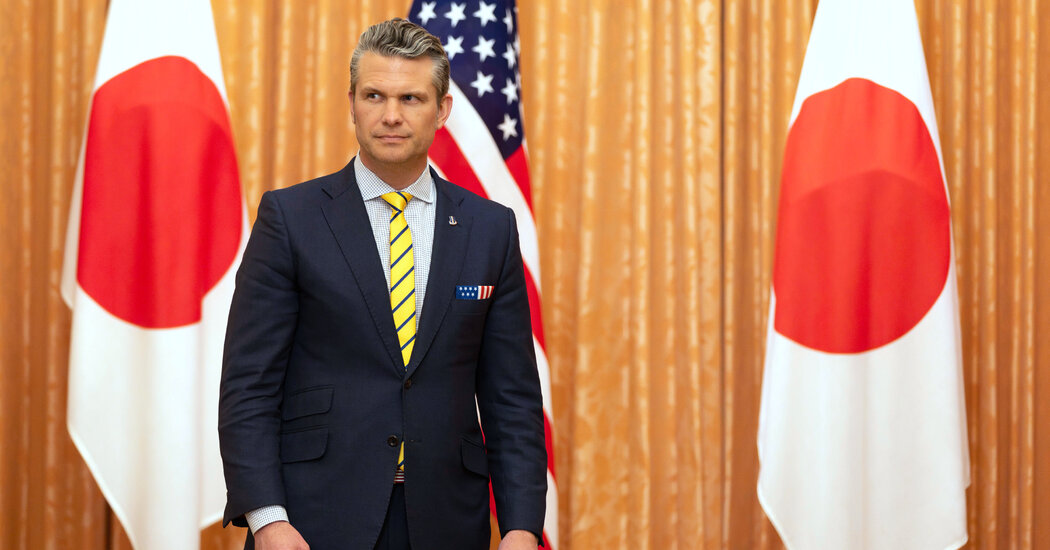Secretary of Defense Pete Hegseth’s Visit to Asia
Secretary of Defense Pete Hegseth concluded his inaugural official visit to Asia on Sunday, emphasizing the Trump administration’s commitment to strengthening military alliances in the region amid rising tensions with China. Meeting with Japanese Defense Minister Gen Nakatani in Tokyo for an extensive 85-minute discussion, Mr. Hegseth reassured Japan that President Trump is dedicated to enhancing security cooperation with this vital ally.
During their meeting, Mr. Hegseth highlighted plans to expedite the creation of a new joint U.S.-Japan military command in Tokyo, which he referred to as a “war-fighting headquarters.” While he did not specify an operational timeline, the initiative aims to bolster readiness and coordination between the two nations’ forces. Additionally, he announced intentions to increase the frequency of joint military exercises in the Okinawa region, which is strategically located near Taiwan—a self-governing island that China claims as its own and has threatened to seize by force.
Prior to his discussions in Japan, Mr. Hegseth visited the Philippines, another key U.S. ally, where he addressed concerns regarding the Trump administration’s commitment to regional stability. Japanese officials have expressed private apprehensions that the U.S. may compromise its alliances in light of ongoing diplomatic negotiations with Russia, particularly regarding territories seized from Ukraine.
- U.S. Marines conducting training exercises on the Japanese island of Okinawa.
- Japan’s concerns about U.S. concessions potentially encouraging aggressive actions by China towards Taiwan.
After his meeting with Minister Nakatani, Mr. Hegseth adopted a firm stance on the U.S.-Japan alliance, declaring that both nations would collaborate to ensure “peace through strength” as a deterrent against Chinese aggression. “America first does not mean America alone,” he asserted to reporters. “America and Japan stand resolutely together in the face of aggressive and coercive actions by the communist Chinese.” Despite the positive tone of his remarks, Mr. Hegseth did not address the controversy surrounding his sharing of military information on the Signal chat app with a journalist.




